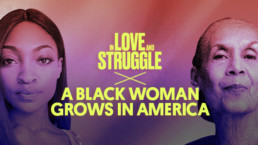Real talk: Should the Olympics be saved?
The Olympics is always a contrast of highs and lows, but the lows at this year’s Tokyo Games have been epic. First there was the controversial choice to hold the Olympics during a pandemic—and on top of that there was Sha’Carri Richardson’s disqualification, a ban on Black swimmers’ Soul Caps, and backlash against Simone Biles for prioritizing her mental health. All within the first 10 days!
So: Can these “cursed Olympics” be saved? Should they be? To find out, Brittany Packnett Cunningham sat down with sports journalist Jemele Hill, host of the podcast “Jemele Hill Is Unbothered” and a contributing writer at The Atlantic, this week on UNDISTRACTED.
“THESE TWO WOMEN HAVE SAID: ‘I CHOOSE ME OVER YOUR ENTERTAINMENT.’”
Packnett Cunningham and Hill got into everything about this year’s complicated games—from the message the Olympics sends to Black women athletes to exactly why the Games trail the rest of the sports world on equity issues. Highlights include:
Hill on Simone Biles’s and Naomi Osaka’s choice to prioritize their mental health: “What’s really bothering people when they are reacting so vehemently and angrily toward what they’ve done, is the fact that these two women have said, ‘I choose me over your entertainment, over your ability to watch me perform.’”
Hill on the hypocrisy of Sha’Carri Richardson’s disqualification for marijuana while Alen Hadzic, the U.S. fencer accused of sexual assault, is in Tokyo: “Sha’Carri Richardson is not in the Olympics, but there’s an Olympic fencer who right now is under investigation for multiple sexual assault allegations—multiple—and was allowed to compete. His own team went to the Olympic committee and said, ‘We do not want this guy around us.’”
“Instead, they came up with a ‘safety plan’…. You know that he’s dangerous enough that you need to develop a safety plan, but good enough to represent the country? That math ain’t mathing.”
Hill on the absence of childcare at the Olympics: “The one thing that allows the Olympic committee…to get away with basically not treating Olympic athletes with kind of basic dignity is the fact that we only pay attention every four years. Shame works…I have a feeling if there were just more eyes and more awareness…that they would not be allowed to get away with what they get away with.”
Hill on whether there’s hope for the Olympics despite its history of racism and sexism: “We’re a very segregated society, but when you love the same team, you root for the same athletes, it tends to knock down walls. And so, because of that, I still feel like there’s a lot of hope…what Naomi Osaka is able to do with bringing this conversation about mental health even more into focus. Simone Biles, same thing. Despite the fact they will receive criticisms, I still think it’s doing way more good than harm.”
Listen on Apple Podcasts, Spotify, Stitcher or wherever you get your podcasts.
If you’re looking for a powerful series of stories to open your mind and your heart—well, we’re biased, but we fully recommend In Love and Struggle: A Black Woman Grows in America. This co-production between The Meteor and Audible showcases 11 stories told by Black women about their lives at every age. You’ll hear from music producer Drew Dixon, two-time Pulitzer-winning playwright Lynn Nottage, The Apollo Theater’s Kamilah Forbes, and more. Need more convincing? Watch the contributors in conversation.
